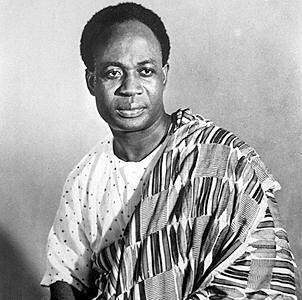re posted from Rising Continent
Nkrumah on the significance of the Congo for Africans
“It is incumbent on us to take our stand by our brothers (and sisters) in the Congo in the full knowledge that only Africa can fight for its destiny.” – Kwame Nkrumah.

“I Am Because You Are,” says a highly valued motto from the African philosophy of Ubuntu.
I am not Congolese, but African. There are presently more than 50 other nationalities on the continent. Some countries are advancing in the right direction and at speedier pace than others.
For a number of years, I have been following closely what is going on in my beloved Africa. As anyone concerned by the well-being of their motherland.
And I did occasionally play my part, contributing for change as much as I could: writing and participating in public discussions or events with an afrocentric focus organised in a variety of places.
In the case of the Democratic Republic of Congo, with the background of the uncertain political situation after the failed holding of elections in 2016, I have for months been wondering what could be my contribution this time. I am anxious.
I consider I am not the only African who is not necessarily Congolese asking themselves the same question. What shall I do? For Congolese people though, this is very imperative: change is a survival issue. Either it happens, or the country degenerates into a failed state, despite the appearance of the contrary.
Dr Ama Biney, in her widely circulated letter to Patrice Lumumba, explains how important late legendary Ghanaian president Kwame Nkrumah considered Congo in the plight of the African continent:
“On 8 August 1960 Nkrumah declared to the Ghana National Assembly: ‘If we allow the independence of the Congo to be compromised in any way by the imperialist and capitalist forces, we shall expose the sovereignty and independence of all Africa to grave risk. The struggle of the Congo is therefore our struggle. It is incumbent on us to take our stand by our brothers in the Congo in the full knowledge that only Africa can fight for its destiny.’
Nkrumah’s words remain as relevant in 1960 as they are today. Today one asks: why is it that one cannot find one African leader who echoes Nkrumah’s words and deeds in relation to the Congo?
The reality is that not only is a revolutionary collective leadership and vision wholly lacking in Africa but continental unification is difficult to realise when Zimbabwe, Angola, Uganda, Burundi and Rwanda have all supported one or other warring rebel group in the Congo or the Congolese government for their own national interests alongside outside interests that have sought to benefit from the continued pillage and plunder of Congo’s enormous mineral wealth.
It is also difficult to achieve when the obsequious African petty bourgeois comprador class continue to exist on hand-outs from their former colonial masters and are entrapped in complex bilateral and multilateral arrangements that have further subordinated Africa to the global neo-liberal capitalist economy.”
Congolese women protesting in Goma [DRC] against Rwandan support to M23
In 2011, we (Africans from different places) showed solidarity with Libyans who were being aggressed by NATO, by staging protests to disapprove that neo-liberal invasion of an African country.
Back in 2014 when Burkinabe stood up to their dictator Blaise Compaore, who after 27 years in power was manoeuvring to change the constitution and stay in office, and then forced him to resign, some of us wrote a statement of solidarity.
Africans wherever we are on the continent or in the diaspora should respond to Kwame Nkrumah’s call and support radical change in the Democratic Republic of Congo. And this shouldn’t be limited to one country or in time.
Congolese people, particularly its youth, are doing what they can to move things forwards. Making them know that they are not alone, would fasten the needed change.
A better DRC, well led and effectively functioning for its citizens, means a better Africa.
